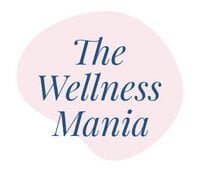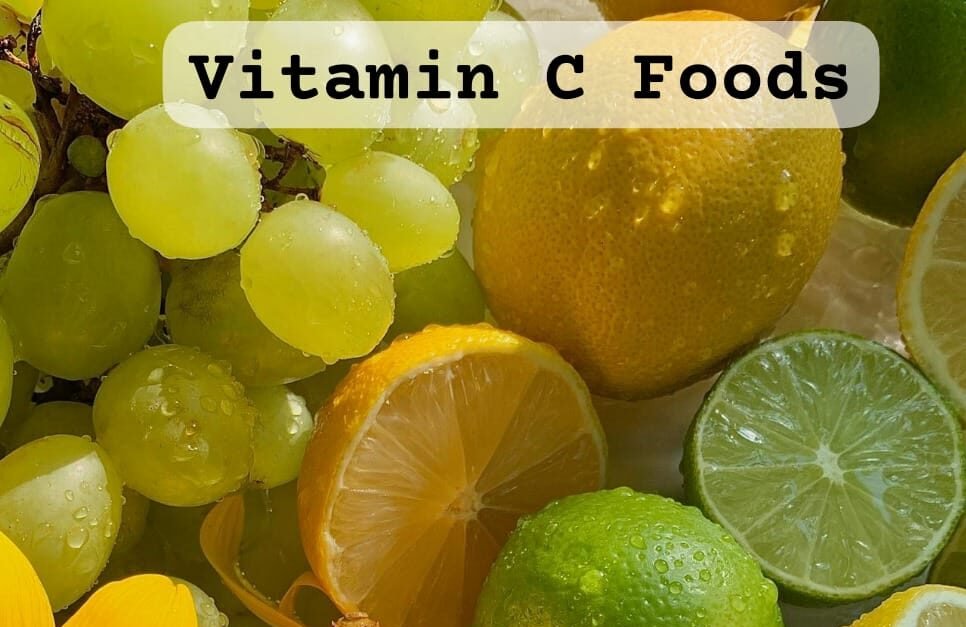Optimal health is associated with the intake of a balanced diet and foods high in vitamin C. Vitamin C is an important component that performs a significant role in retaining the overall health and well-being of the body. Different foods high in vitamin C are available that help support and maintain different body functions.

Benefits of Vitamin C
Vitamin C deals with a wide range of health advantages, including:
- Role in Immune Function: Vitamin C has a significant function in the production and working of white blood cells that provide the basic mechanism of defense against different infections and illnesses. It also improves the performance of different immune cells, such as phagocytes and lymphocytes, and boosts the immune response. Foods high in vitamin c improve the immune response.

- Antioxidant Properties: Vitamin C is a strong antioxidant and counterbalance the free radicals in human body. The free ionic radicals trigger damage to tissue and cells, and the vitamins act as scavengers for the free ion species and reduce the risk of different cancer, heart, and age-related diseases.
- Collagen Synthesis: Skin, cartilage, blood vessels, and bones have structural integrity due to collagen protein and vitamin C, the important factors in collagen synthesis.
- Iron Absorption: Vitamin C is important to absorb non-haem iron. People who have a plant-based diet have problems with iron digestion. Vitamin C helps in this situation and prevents anemic conditions. Foods high in vitamin c can help to absorb iron.
- Neurotransmitter Synthesis: Vitamin C also plays an important role in cognitive functions, as these take part in neurotransmitter synthesis. Vitamin C works in the production of norepinephrine and dopamine, which are important for mood, stress response, and cognition.
Recommended Daily Intake
The daily recommended allowance (RDA) varies for each person depending upon:
- Age
- Sex
- Life stage
Some other conditions may affect the daily intake of vitamin C, such as:
- Smoking status
- Medical conditions
- Environmental stressors
Here is the table for the daily requirements of a person in normal conditions.
| Age Group | Daily Recommended Allowance of Vitamin C (mg) |
| Infants of 0-6 months old | 40 mg |
| Infants of 7-12 months old | 50 mg |
| Children of 1-3 years old | 15-20 mg |
| Children of 4-8 years) old | 25-30 mg |
| Children of 9-13 years) old | 45-50 mg |
| Teenagers of 14-18 years) old | 65-75 mg |
| Adults of 19 years and above | 75-90 mg |
| Women with pregnancy | 85-100 mg |
| Women during Breastfeeding | 120-130 mg |
Consultation with a medical professional is mandatory before using the vitamin C dosage.
Top Foods High in Vitamin C
Different commonly available fruits, vegetables, and lentils have enough vitamins. By using these in combination with diet, vitamin C deficiency can be overcome. Foods high in vitamin C are the significant source to improve the health and well-being.
1. Citrus Fruits
Citrus fruits are the most common and well-known source of vitamin C, such as:
- Oranges
- Grapefruits
- Lemons
- Limes
The above fruits are packed with all the required nutrients, along with vitamin C. The daily needs can be fulfilled by vitamin C, e.g., one medium-sized orang has 70mg of vitamin C, which is enough to meet the daily requirements of adults.
2.Berries
All types of berries, such as blueberries, blackberries, raspberries, and strawberries, are also rich sources of vitamins. In the case of strawberries, a full cup can have 85 mg of vitamin C, which is enough for daily requirements.

3.Tropical Fruits
Tropical fruits are one of the rich foods high in vitamin C include:
- Kiwi
- Pineapple
- Mango
If you take one single fruit of Kiwi, it can provide 100mg of vitamin C.

4.Bell Peppers
Yellow and red varieties of bell peppers are also loaded with vitamin C. If the red bell peppers can be cut up to one cup, they can provide 200 mg of vitamin C, which is much more than the daily requirement of an adult body.

5.Cruciferous Vegetables
Cruciferous vegetables are one of the foods high in vitamin C in a diet, such as
- Broccoli
- Brussels sprouts
- Cauliflower
These vegetables are rich sources of fiber and antioxidants. One cup of broccoli in cooked form can provide 100 mg of vitamin C.

6.Leafy Greens
Leafy greens Vegetables can also help fulfill the daily requirement for vitamin C. These leafy greens are:
- Spinach
- Kale
- Swiss chard
These vegetables have less vitamin C than other fruits and vegetables, but they can be a supporting source for others.
7.Tomatoes
Tomatoes are the cheapest and most commonly found foods high in vitamin C. Many forms of tomatoes are used in daily meals, such as fresh or crushed tomatoes in sauce form or salsa, giving meals extra taste and nutrition.
Vitamin C content in fruits and vegetables
Here are some fruits and vegetables with vitamin C content.
| Fruit/Vegetable | Vitamin C Content (mg per 100g) |
| Oranges | 53.2 |
| Kiwi | 92.7 |
| Strawberries | 58.8 |
| Pineapple | 47.8 |
| Mango | 36.4 |
| Papaya | 60.9 |
| Red Bell Peppers | 127.7 |
| Green Bell Peppers | 80.4 |
| Yellow Bell Peppers | 183.5 |
| Broccoli | 89.2 |
| Brussels Sprouts | 85.0 |
| Cauliflower | 48.2 |
| Spinach | 28.1 |
| Kale | 93.4 |
| Swiss Chard | 30.0 |
| Tomatoes | 23.4 |
| Strawberries | 58.8 |
| Blueberries | 9.7 |
| Raspberries | 26.2 |
These values are the approximate values of vitamin C depending upon the growing conditions and ripeness of fruits and vegetables.
Conclusion
Vitamin C provides protection to the skin by producing antioxidants and collagen proteins. The daily requirement of vitamin C is very important to the overall health and well-being of the skin. Different vitamin C-rich foods can ensure meeting the daily dietary requirement if these foods high in vitamin C are incorporated into daily meals.
FAQs
Can vitamin C inhibit the common cold?
Vitamin C is used to boost the immune system. A better immune response helps the body cure or recover from the common cold condition as soon as possible. So, it strengthened the body again for disease conditions.
What are the excellent food sources of vitamin C?
Different fruits and vegetables are foods high in vitamin C, such as all types of berries, citrus fruits, kiwi, broccoli, spinach, and bell peppers. The daily intake of vitamin C can be easily reached by adding foods high in vitamin C.
Is it feasible to use too much vitamin C?
Everything must be in moderate quantities, as an excess of everything may indulge you in health issues such as abdominal cramps, nausea, and diarrhea. So, it is important to use only the required amount of food.
Who is at risk of vitamin C absence?
The people who have some conditions, such as:
i. Limited access to fresh fruits and vegetable
ii. Smokers
iii. Malabsorption disorders
are much more at risk of vitamin C-deficient bodies.
Can vitamin C supplements work together with medicines?
If the person is going through some other medical condition and using the medication, then a high dosage of vitamin C can interact with these medications, such as:
i. Blood thinners
ii. Chemotherapy drugs
iii. High blood pressure medicines
iv. Diabetes medicines
So, it is important to always consult the doctor before adding vitamin C dosages to daily diet plans.


Great information